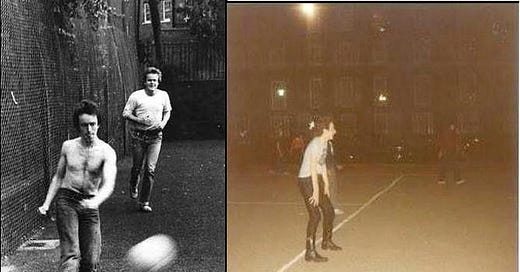Getting On With The Neighbours
On a depressing day of racist riots, a quick tour of some local pop-history sites cleansed the soul. Featuring: The Clash, Paul Weller, Elvis Costello, The Small Faces... and a dirty old man
THE WEEKEND was grim. The boil that is modern England burst and the pus of white nationalism stained the entire country. There comes a point where you can’t watch the news on TV any more. You have to go out for a walk.
Saturday was a lovely day in Pimlico. There were Muslim women with pushchairs, a babble of different tongues in the air – French, Chinese and various Slavic languages – and even the odd local accent. London was normal. London was cool in the summer heat.
But where to go? My thoughts went back to another spasm of bigotry in the late 1970s. Those were the days of the Anti-Nazi League and Rock Against Racism. One of the first bands that came to mind thinking about that era was The Clash. First stop on the walk would be a pilgrimage to Joe Strummer and the boys.
In 1979, The Clash were exhausted mentally and physically. They installed themselves in Vanilla Studios, a quarter of a mile from the Thames, and began work rehearsing the album that would be become London Calling. But it wasn’t Vanilla Studios I’d come to see. That’s long gone.
The band got their mojo back in an unexpected manner – by playing football. They went across Causton Street to a caged playground and spent hours kicking a ball around. The local kids joined in and, more than 40 years on, they tell tales of how they’d come out of school, knock on Vanilla’s door and ask the boys to come out and play.
The Clash in action, top, and the scene of the game today
“I just think we really found ourselves at that time, and it was a lot to do with the football,” Mick Jones said later. “Because it made us play together as one.”
Strummer reinforced the notion. “We’d play loads of football until we couldn’t manage another single kick,” he said. “And then we’d start playing and writing music. It was our way of warming up.”
On this Saturday, you could hear the shouts of a serious game from around the corner. A multiracial group of kids were hard at it, tackling with gusto, shrieking with delight when someone scored and giving each other a ton of stick.
Britain felt a better place. Strummer would have been proud.
THE NEXT STOP? Denbigh Street, 10 minutes’ walk away. To the first London residence of another of the post-punk campaigners. Paul Weller’s main contribution to opposing right-wing viewpoints came during his Style Council days when he was deeply involved with Red Wedge but when The Jam’s leader came to Pimlico he was still a Woking bumpkin trying to find his place in the political world.
He moved into a flat in Denbigh Street and didn’t impress the local boys at first – he was a bit standoffish. That was until some of the lads grabbed him in the Dolphin pub and pulled his pants down – at least that’s what some of them claim. After that, everything was good.
Weller grasped the importance of politics in the second half of his time with The Jam. I’ve written about that, and spending time with the band in the studio while they were recording Sound Affects, here.
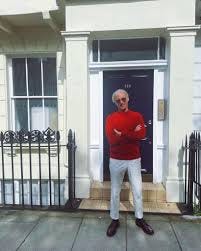
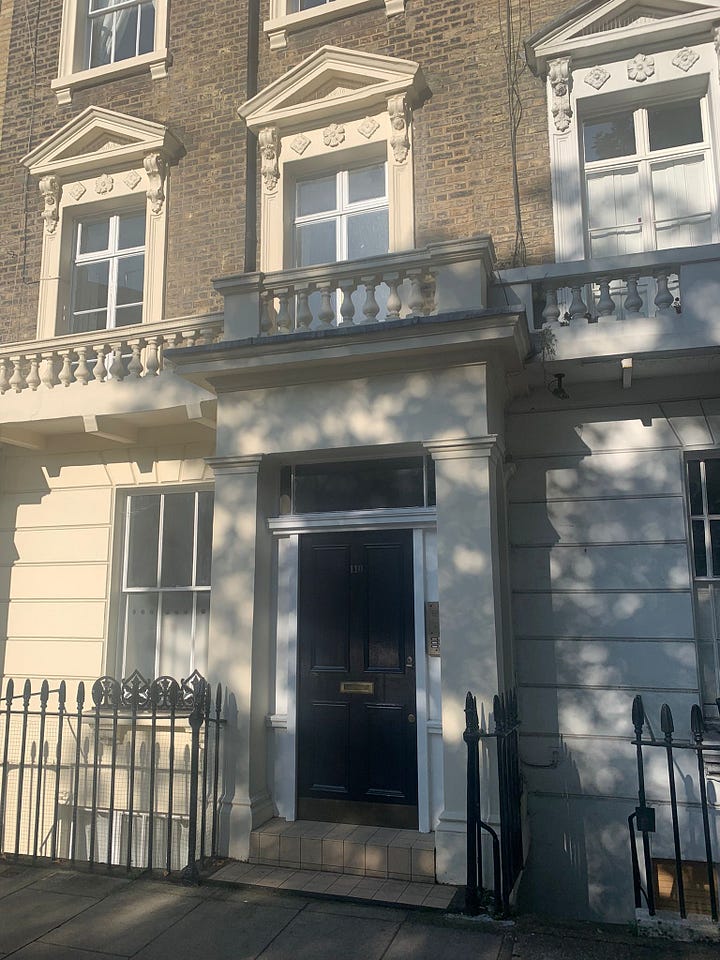
Weller on a nostalgic visit back. Note pants are pulled up
VIRTUALLY BACKING ON to Weller’s place was Archipelago Studios on Moreton Terrace. There, Elvis Costello recorded a demo of New Amsterdam without The Attractions.
This version, produced by Nick Lowe, made it on to the Get Happy!! album and became the lead single on a four-track EP. Elvis was another musician who was prominent in the Rock Against Racism movement and, like Weller, remains committed to social justice.
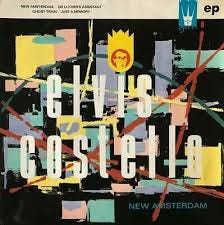
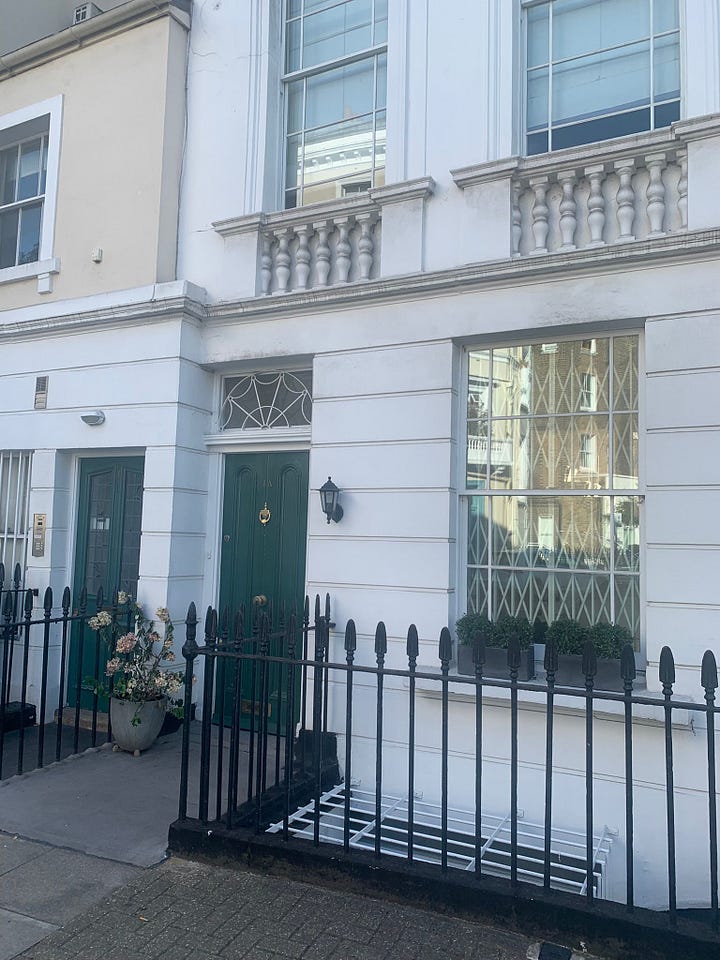
EP and place it was recorded. It’s hard to believe million pound properties were once studios
ROUND THE CORNER in Moreton Place is the house of someone who only had a tangential role in rock’n’roll history but is one of the great figures of the 1960s and 70s entertainment world. Wilfrid Brambell was a Dubliner who played rag and bone man Albert Steptoe in Steptoe And Son. Harry H Corbett, his screen son, would constantly refer to Brambell's character as “you dirty old man.”
The Beatles made Brambell an international star when he was cast in 1964’s Hard Day’s Night movie as Paul McCartney’s Irish grandfather. The running joke is that one of the other three Beatles would ask, “who’s the little old man?” The reply would come, “I don’t know, but he’s very clean.”
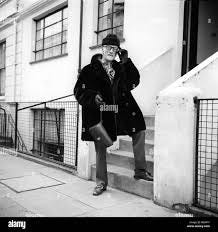

Dirty old man and very clean house
The Irish grandfather idea is interesting. McCartney frequently referred to himself as “Liverpool Irish.” He was appalled by Bloody Sunday and less than a month after the outrage in Derry released a single called Give Ireland Back To The Irish with his new band Wings. It was banned by the BBC. Macca understands that immigration and Irishness are essential to the Scouse identity. Just wish he hadn’t accepted a knighthood.
THE LAST STOP for the day was at a house that spawned one of the most famous lines in pop music history. When Steve Marriott sang, “Wouldn’t it be nice to get on wiv me neighbours,” it was written about the Small Faces’ “party house” on Westmoreland Terrace.
Lazy Sunday Afternoon is a 1960s mod classic. The neighbours, of course, made it very clear they had no room for ravers. No wonder.
Don Arden, Sharon Osbourne’s father, rented the place and moved the band in just after Christmas 1965. Kenny Jones, the drummer, had the good sense to remain living with his parents but he showed up for the photoshoots.
And the parties, which were legendary. Mick Jagger, The Beatles, The Who and most of pop’s royalty made their way to Pimlico to join in the fun. Brian Epstein, The Beatles’ manager, took LSD for the first time in the house.
It used to have a blue plaque but that’s gone and the present residents have removed the number (although the addresses either side make the house easily identifiable). The street is considerably more genteel than it would have been in the 1960s, when the area had a much rougher edge.
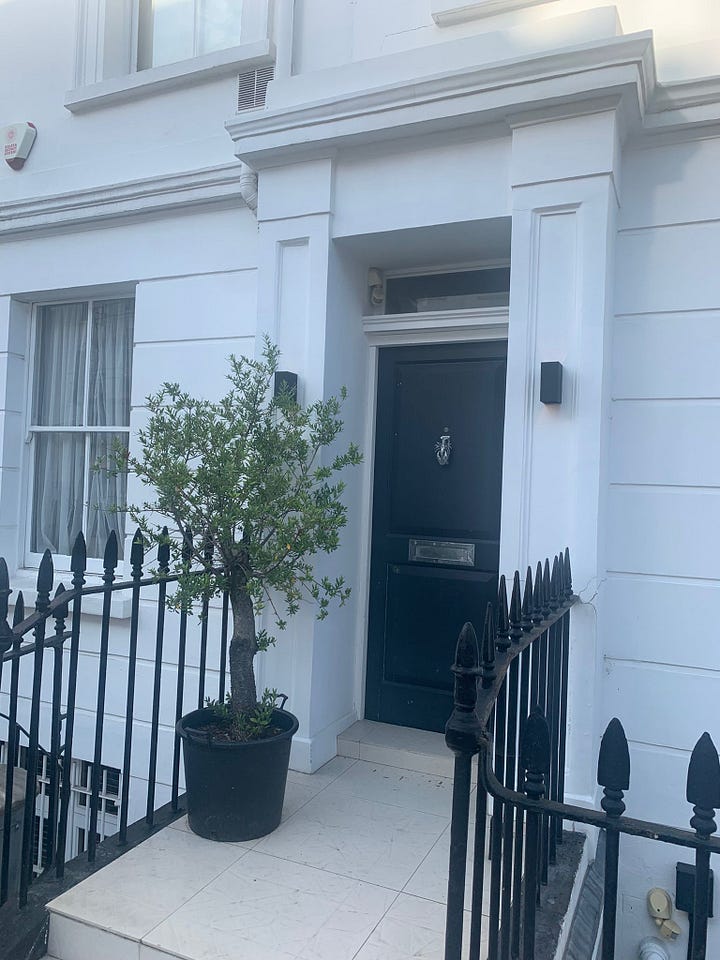
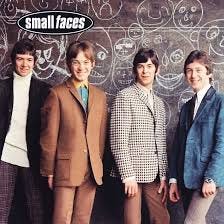
Party house and The Small Faces
Still, we could all do with getting on with our neighbours. Especially now. But a calming walk through multicultural London eased the mind on a dispiriting Saturday... until I got home and turned the telly on again.
